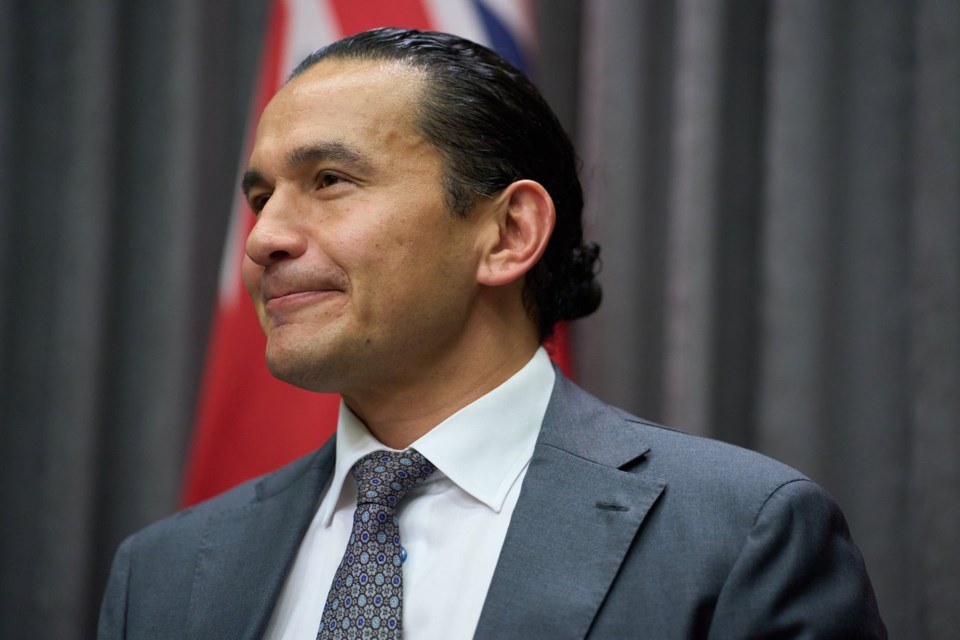WINNIPEG — The Manitoba government is buying apartment buildings and plans to start clearing encampments next month as part of its long-term strategy to reduce homelessness.
Several buildings are being bought and renovated, and the province aims to partner with municipalities and community agencies to offer support services such as addiction treatment.
"We're going to work together and ensure that everybody has a place to call home, and importantly, that you have the addictions and mental health services to succeed in living with a roof over your head," Premier Wab Kinew said Tuesday at a curling club near an encampment on a city riverbank.
The NDP government has promised to eliminate chronic homelessness — people who are unhoused for several months or more — in the next seven years. A major part of the plan to is remove the estimated 700 people living in encampments.
Starting in February, the government plans to hire people and partner with community agencies to designate enough available housing for everyone in an encampment, approach the people in the encampment, and get them to agree to leave within 30 days.
The aim is to repeat the process, encampment by encampment, until the areas are clear. Some 300 residential units are expected to be newly available in the coming months.
The government has hired Tessa Blaikie Whitecloud, chief executive officer at Siloam Mission, a charity that serves the unhoused, to quarterback the project. About $20 million will be spent over two years on the effort, in addition to other housing and mental health money laid out in the budget, Kinew said.
Opening up new housing units — owned by either the government or non-profit agencies — is key, Blaikie Whitecloud said, as there is currently a severe shortage of deeply affordable housing.
Some details of the plan remained unclear Tuesday, including the locations of the apartment buildings being purchased and whether removals from encampments would be strictly enforced.
When asked how the province could ensure everyone leaves an encampment, Blaikie Whitecloud said it would happen by making sure the housing being offered is the more attractive option.
"That could look like more congregate housing. It also can look like moving an entire encampment into housing together so they don't lose that sense of street family," she said.
The government's strategy also promises that once an encampment is empty, it will be cleaned thoroughly and monitored in a way that will prevent new encampments from being set up.
That means outreach workers will continue to visit the site and offer help to anyone setting up camp, Blaikie Whitecloud said.
The government is also promising more "flex funding" to help people get housing. That might mean a bus or plane ticket for someone in Winnipeg who needs to return to their home in another community, Kinew said.
Winnipeg Mayor Scott Gillingham said the city will work with the province on the plan.
Officials at Main Street Project, which operates a shelter and support centre in Winnipeg, welcomed the initiative.
"We know from our work with marginalized people that housing needs to be tailored to the unique needs of the people accessing it, and that meaningful connections with people to support them on their housing journey is necessary for success." the charity said in a news release.
The Opposition Progressive Conservatives said the government's plan lacks details and does not acknowledge that there is a shortage of workers in the field.
"We have front-line workers who are working to the brink, who need support," Carrie Hiebert, Tory housing, addictions and homelessness critic, said.
"So my question would be: Where are they going to be getting all these extra supports and staff to be running these programs?"
This report by The Canadian Press was first published Jan. 14, 2025
Steve Lambert, The Canadian Press



